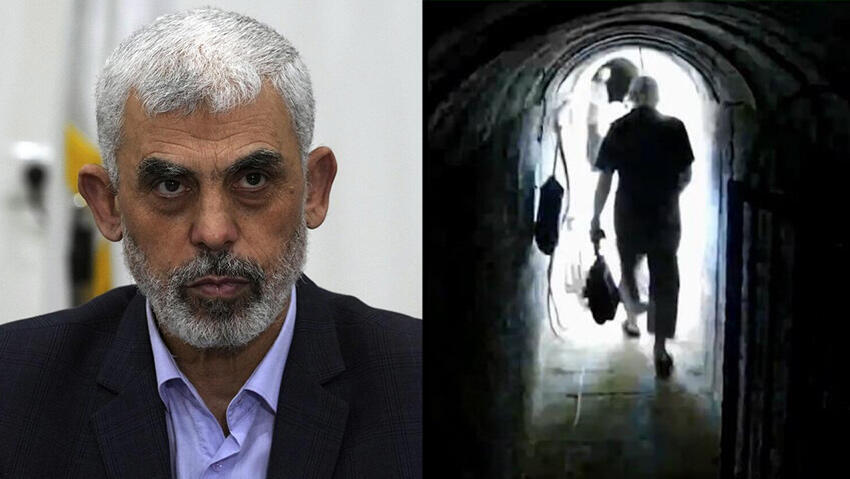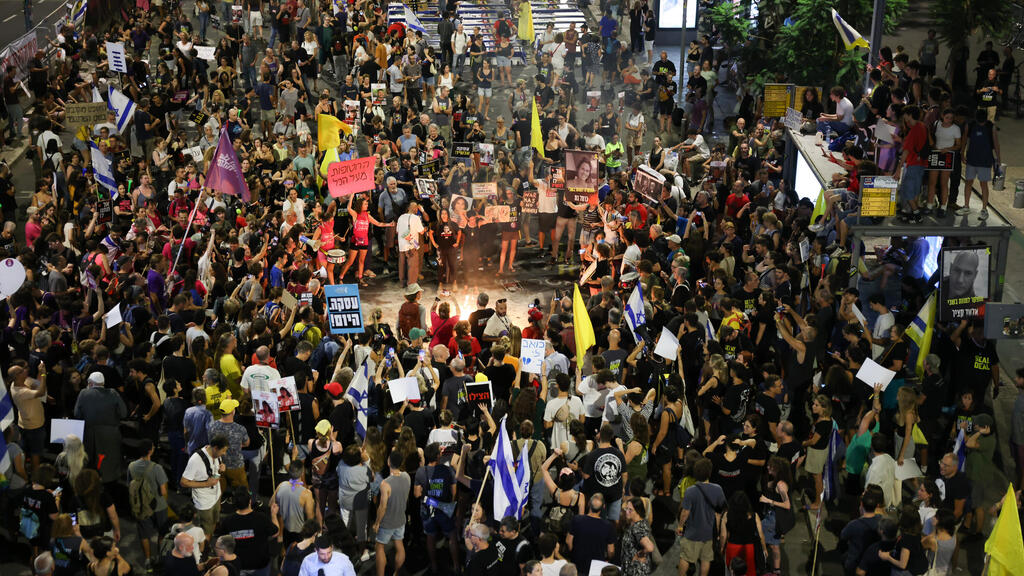Getting your Trinity Audio player ready...
Yahya Sinwar intended to prolong the war, and the suffering of civilians in Gaza, in order to improve his position in cease-fire negotiations and ensure his terror group would be able to rebuild its military might.
A document found on the terror leader's computer and seen by the German Bild newspaper also details how the suffering of Israeli hostages held captive in Gaza, should be used to exert pressure on the Israeli public.
According to the report published on Friday, the document also outlines how international public opinion should be manipulated against Israel and how Arab nations should be made to protect Hamas against further IDF incursions into Gaza after the first phase of the cease-fire currently being negotiated, is completed.
The document which was approved by Sinwar personally, reveals that the terror group was not seeking a quick end to the war or was concerned with the suffering of Palestinians in the Gaza Strip. "We must improve certain important items in the deal, even if negotiations take longer," the document states. But Hamas also admits that its military capabilities were diminished.
The paper highlights the fact that thousands of Gazans have died in Israeli attacks since the war broke out, but the Hamas document does not mention that fact. It does however detail how psychological terror should continue. "We must continue to put psychological pressure on the families of prisoners, (hostages) now and in the first phase of the cease-fire deal so that public pressure on the enemy's government intensifies.
The Bild describes the cruelty with which Hamas used the hostages, including the release of video clips showing some of the captives who were executed just last week. This is barbaric psychological torture, the paper said, meant to influence the desperate families to do everything to secure the release of their loved ones, even if it means undermining their government.
According to the document, Hamas intended to use the hostages during the cease-fire, to pressure Israel. "In the course of negotiations for the second phase, we will allow the Red Cross to visit some of the hostages, as a goodwill gesture, to relay messages to their families," Bild said the document read so that the pressure on Israel to extend the cease-fire will grow.
In the document, Hamas demands the release of 100 Palestinians serving life sentences in Israeli jails. It outlines how the international community can be manipulated to expedite the rebuilding of Hamas's military power.
According to the document, a political offensive must be launched including the deployment of an Arab force to act as a buffer and prevent the return of Israeli troops to the Strip, "until we are able to replenish our ranks and rebuild our capabilities."
In its conclusion, the document details how to influence world media: Israel alone must be held responsible for the failure of negotiations. Hamas's message to the Israeli press is that their government rejected the American proposal its failure was not because of Hamas, which had accepted the deal, but because of the government's obstinance. "So that Hamas is not seen as responsible for the failure of negotiations."





